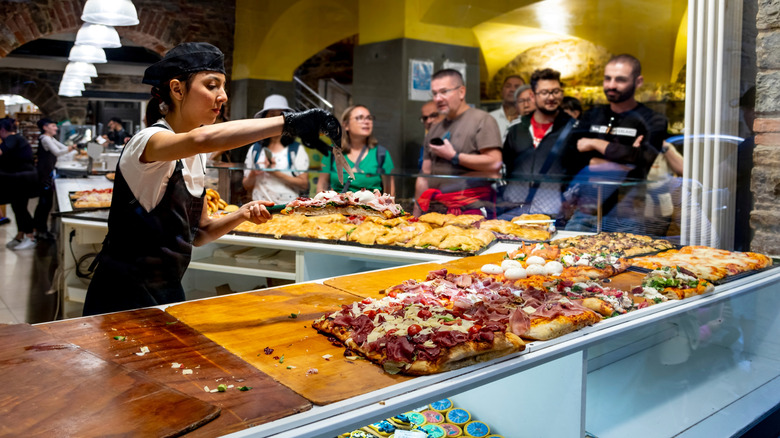The Cheap Hotel Deal Rick Steves Warns Tourists To Avoid When Booking Accommodation In Europe
At the time of writing, the exchange rate between Euros and U.S. dollars is 1.155. That means that travelers to European countries where the Euro is used as currency need approximately $1.16 to secure a single one-Euro coin. Compare that with January 2025 when the dollar was stronger versus world currencies. At that time, tourists required only about $1.02 to exchange for a single Euro. All that is to say that a European vacation has grown considerably more expensive for Americans over recent months.
With that in mind, the urge to save money where possible is quite strong. However, travel expert Rick Steves recommends that vacation-goers avoid one particular savings tactic, even if it does mean conserving money: purchasing lodging which also includes meals. Specifically, hotel room rates that include dinner, sometimes marketed as "half board."
If anyone is qualified to dole out European travel advice, it's Steves. Since the early 1970s, the native of Washington State averages about four months per year spent abroad. The information gleaned during those reconnaissance missions has been distilled into guidebooks, television shows, group tours, and more.
Dine with locals instead
As explained by Steves on his website, "Some hotels offer room rates that include dinner in their dining room ... [and] a few places (often resorts) even require it, especially in peak season." Bundling meals along with a hotel room when making reservations can potentially save money versus impromptu ordering from the hotel's menu or visiting restaurants which are located outside the hotel. But by doing so, travelers will deprive themselves the cultural experience of dining on local cuisine in the company of the area's residents. Taking that concept a step further, some travelers may even opt to avoid restaurants that cater to English speakers.
Admittedly, some hotels will offer a sampling of local cuisine along with a more continental menu, but it may not be as authentic. Plus, you traveled to Europe to experience new cities to their fullest, not a hotel's lobby dining room. If price is truly an issue, Steves recommends hitting up a local grocery store to buy some picnic supplies or to-go meals. For example, the rustic squares of pizza or focaccia which are ubiquitous at Italian supermarkets. Nonetheless, there are some circumstances where hotel dining is appropriate, such as small villages without any other shops or restaurants available.
Adding breakfast isn't totally taboo
Besides dinner, Steves also cautions against paying higher room rates for an included breakfast in the hotel's dining room. That said, the travel pro concedes that there are times when this strategy can be worthwhile. If the add-on breakfast is very basic with perhaps just bread and coffee, it might not be worth pursuing since local bakeries can provide these necessities at lower cost. But a large breakfast buffet with many selections, including hot dishes, can be a great foundation for fueling a day's worth of exploring without getting hungry.
Half- or full-board meal packages notwithstanding, Steves has a few other recommendations for traveling in Europe on a budget. That includes saving money by choosing a hotel room that includes a "private" bathroom for the exclusive use of one room, but which may be located down a hallway. He also mentions sticking to smaller, possibly independent hotels that don't court deep-pocketed business travelers with company expense accounts. Similarly, if you can live without amenities like a 24-hour reception desk, elevators, or room service, a smoking deal on a hotel room could be possible on your European sojourn.


